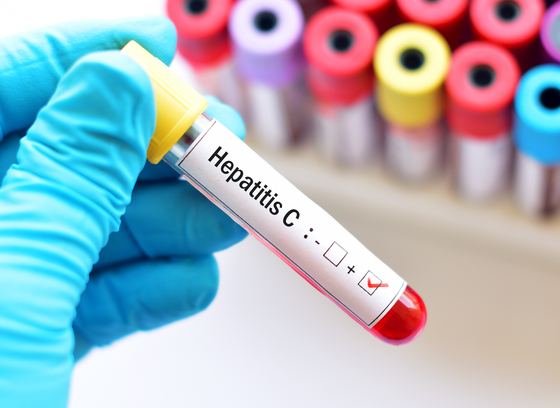8930 Stanford Blvd
Columbia, MD 21045
United States
Hepatitis
Hepatitis C is a disease caused by a virus that infects the liver. The virus, called HCV for short, is just one of many hepatitis viruses. The other common hepatitis viruses are A and B, which differ somewhat from HCV in the way they are spread and treated. According to the CDC, an estimated 2.7 million people in the United States have chronic Hepatitis C infection.

The Infectious Disease Surveillance and Response Program monitors for hepatitis cases in Howard County by receiving lab reports from hospitals, providers, and laboratories. We provide daily monitoring to protect the community from the spread of these infectious diseases by investigating for a source of infection, monitoring pregnancies at risk for transmission, providing up to date guidance, contact tracing, and offering close contacts vaccination at HCHD or locating a provider.
To contact us, email infectiousdisease@howardcountymd.gov or call 410-313-1412.
Hepatitis Information & Resources
Who Can Get Hepatitis and How
Hepatitis C is spread when blood from a person infected with the Hepatitis C virus – even in microscopic amounts – enters the body of someone who is not infected. The hepatitis C virus can also be transmitted from:
- Sharing equipment that has been contaminated with blood from an infected person, such as needles and syringes
- Receiving a blood transfusion or organ transplant before 1992 (when widespread screening virtually eliminated hepatitis C from the blood supply)
- Poor infection control has resulted in outbreaks in health care facilities
- Birth to an infected mother
Hepatitis A is very contagious and spreads through close contact with an infected person or eating contaminated food or drinks. Hepatitis B and C are spread when blood, semen, or other body fluids from an infected person spreads to a non-infected person. This can happen through sexual contact; sharing needles, syringes, or other drug-injection equipment; or during pregnancy or delivery.
Symptoms
Hepatitis C can range from a mild illness, lasting a few weeks, to a serious, life-long (chronic) infection. Most people who get infected with the hepatitis C virus develop chronic hepatitis C. More than 50% of people who get infected with the hepatitis C virus develop a chronic infection. (CDC)
Many people with hepatitis do not have symptoms and do not know they are infected. If symptoms occur with an acute infection, they can appear anytime from 2 weeks to 6 months after exposure. Symptoms of chronic viral hepatitis can take decades to develop. Symptoms of hepatitis can include: fever, fatigue, loss of appetite, nausea, vomiting, abdominal pain, dark urine, light-colored stools, joint pain, and jaundice. (CDC)
- Bleeding easily
- Bruising easily
- Fatigue
- Poor appetite
- Yellow discoloration of the skin and eyes (jaundice)
- Dark-colored urine
- Itchy skin
- Fluid buildup in your abdomen (ascites)
- Swelling in your legs
- Weight loss
- Confusion, drowsiness and slurred speech (hepatic encephalopathy)
- Spiderlike blood vessels on your skin (spider angiomas)
Risk Factors
Your risk of hepatitis C infection is increased if you:
- Are a health care worker who has been exposed to infected blood, which may happen if an infected needle pierces your skin
- Have ever injected or inhaled illicit drugs
- Have HIV
- Received a piercing or tattoo in an unclean environment using unsterile equipment
- Received a blood transfusion or organ transplant before 1992
- Received clotting factor concentrates before 1987
- Received hemodialysis treatments for a long period of time
- Were born to a woman with a hepatitis C infection
- Were ever in prison
- Were born between 1945 and 1965, the age group with the highest incidence of hepatitis C infection
When to Get Tested
CDC recommends hepatitis C testing for:
- All adults aged 18 years and older
- All pregnant women during each pregnancy
- People who ever injected drugs and shared needles, syringes, or other drug preparation equipment, including those who injected once or a few times many years ago. Regular testing is recommended for people who currently inject and share needles, syringes, or other drug preparation equipment.
- People with HIV
- People who have ever received maintenance hemodialysis. Regular testing is recommended for people who currently receive maintenance hemodialysis.
- People with persistently abnormal ALT levels
- People who received clotting factor concentrates produced before 1987
- People who received a transfusion of blood or blood components before July 1992
- People who received an organ transplant before July 1992
- People who were notified that they received blood from a donor who later tested positive for HCV infection
- Health care, emergency medical, and public safety personnel after needle sticks, sharps, or mucosal exposures to HCV‑positive blood
- Children born to mothers with HCV infection
- Any person who requests hepatitis C testing should receive it.
The Health Department offers rapid Hepatitis C testing Monday - Friday from 10:00am - 3:00pm. Appointments are preferred, but not required. Call us at 410-313-7500 to make an appointment for testing and/or vaccination.
Treatment
There are several medications available to treat chronic hepatitis C. Current treatments usually involve 8-12 weeks of oral therapy (pills) and cure over 90% of people with few side effects
The Health Department offers linkage to care and case management that will help get you connected with a local provider that can discuss treatment options and start the treatment that is best for you.
Call 410-313-1412.